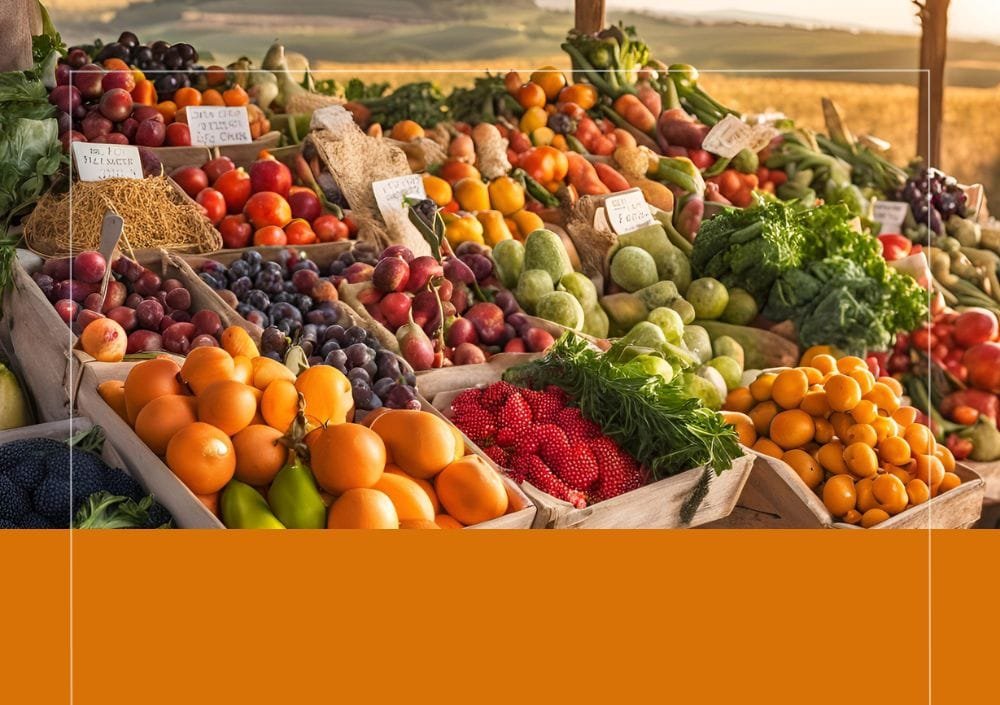What Is an Organic Product?
Before diving into the specifics of Apulian organic production, it’s helpful to understand what is meant by “organic.” An organic product is grown without the use of chemical pesticides, synthetic fertilizers, or genetically modified organisms (GMOs). Strict production standards are followed, including crop rotation, the use of organic compost, and natural pest control methods. These practices promote soil health, biodiversity, and reduced environmental impact.
Puglia: A Fertile Ground for Organic Production
Puglia is characterized by its vast expanses of farmland, bathed in sunlight for most of the year and refreshed by sea breezes. This favorable climate, combined with the region’s millennia-old agricultural tradition, makes Puglia an ideal area for cultivating organic products. Among the main Apulian organic products are:
- Extra virgin olive oil: A flagship of the region, Apulian olive oil is recognized worldwide for its unique flavor. Organic farming respects the natural cycles of olive trees and minimizes the use of water resources.
- Organic wine: Apulian vineyards produce organic wines that respect the environment and local traditions. Among the most famous are Primitivo and Negroamaro.
- Vegetables and fruit: From cherries to artichokes, Puglia offers a wide range of organic fruits and vegetables, often grown using ancient farming techniques passed down from generation to generation.
The History of Organic Farming: A Growing Movement
The idea of organic has deep roots dating back to the 20th century. The pioneer of this movement was Sir Albert Howard, a British agronomist who in the 1920s began developing theories on the importance of soil fertility and using natural techniques to improve crop health. In the 1940s, Rudolf Steiner, founder of biodynamic farming, helped spread the concept of sustainable agriculture in Europe. This holistic and regenerative approach to farming included the use of natural preparations and respect for the interconnections between land, plants, and animals.
Over the following decades, the organic movement grew more and more, culminating in the 1990s with the introduction of strict regulations and certifications. In Europe, the European Union introduced the organic logo, a stylized leaf on a green background, guaranteeing the quality and traceability of products. Today, organic farming is a thriving sector, embraced by many farms in Puglia as well.
Environmental Sustainability and Organic Farming
One of the main advantages of Apulian organic products is their contribution to environmental sustainability. The organic farming techniques used in Puglia, such as crop rotation and the use of natural fertilizers, reduce soil erosion and preserve local biodiversity. Moreover, the absence of chemical pesticides and synthetic fertilizers helps improve the quality of groundwater and reduces pollution.
Apulian organic farming also relies on efficient water resource use, a particularly important aspect in a region that can experience long periods of drought. Drip irrigation techniques, for example, help minimize water waste.
Health and Well-being of Apulian Organic Products
In addition to being a sustainable choice for the environment, organic products offer numerous health benefits. Without the use of chemical pesticides and GMOs, organic products have a higher concentration of essential nutrients like vitamins and antioxidants. Moreover, eating organic reduces the risk of exposure to potentially harmful chemicals.
Consuming organic products can also improve gut health, thanks to a higher presence of fiber and phytonutrients. Studies show that people who follow a diet rich in organic products have lower levels of toxins in their blood, which can reduce the risk of chronic diseases.
Supporting the Local Economy of Apulian Organic Products
Choosing Apulian organic products also means supporting the local economy. Many small farms in Puglia have embraced organic farming as a way to differentiate themselves and enhance the value of their land. These farmers often follow traditional agricultural practices, ensuring an authentic and high-quality product. Supporting these realities means contributing to the preservation of the region’s biodiversity and agricultural traditions.
Moreover, the growing demand for organic products has created new job opportunities in Puglia, from agriculture to food processing, fostering the development of a more resilient and sustainable economy.
Certifications and Traceability of Apulian Organic Products
Another element that makes Apulian organic products a sustainable choice is the strict certification they undergo. In Italy, organic production is regulated by strict laws that require regular inspections at all stages of production. Labels on Apulian organic products always feature the European organic logo, ensuring compliance with these standards.
The traceability of products is another key aspect: consumers can easily verify the origin of the products and the production process, ensuring they are purchasing authentic and sustainable products.
Conclusion
Apulian organic products represent much more than just a food choice. They are a way to support agricultural practices that respect the environment, health, and local traditions. Opting for Apulian organic products means contributing to the preservation of a unique agricultural heritage while reducing our impact on the ecosystem. If you seek quality, authenticity, and sustainability, the organic products of Puglia are the perfect choice for you and the planet.






